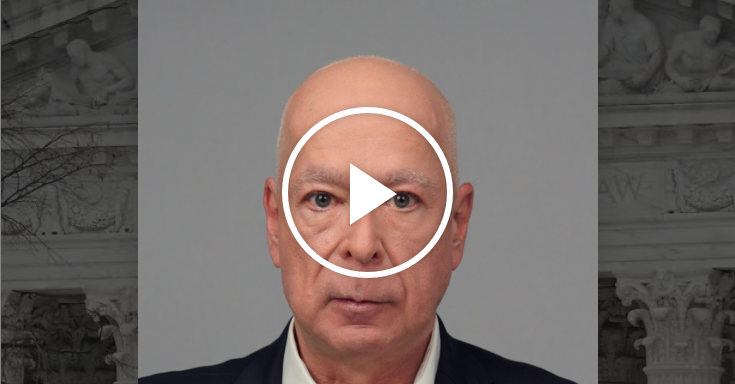At the helm of Supreme Court coverage for The New York Times, Adam Liptak has been a steady and insightful commentator on America’s highest judiciary body. In a recent column, Liptak considered the turbulent state of American politics and the law, suggesting that the right question isn’t whether we are in the midst of a constitutional crisis but rather how much damage it will inflict and how it might fundamentally transform the American government.
To understand the gravity of Liptak’s assertion, we must first comprehend what is meant by a constitutional crisis. In simple terms, a constitutional crisis occurs when there are disputes or ambiguities around the constitution that the law cannot resolve. Such a crisis can also arise when different branches of government disagree fundamentally over their constitutional responsibilities or violate the constitution’s norms without clear legal recourse.
The question that Liptak believes we should be asking is not whether we are in the midst of such a crisis – he seems to take that as a given – but how deeply this crisis will cut into the fabric of the American republic, and what changes it might precipitate in the structure and functioning of the government.
A constitutional crisis can cause significant damage, shaking the very foundations of a nation’s legal and political systems. It can result in a loss of public trust, political instability, and a breakdown in the rule of law. This damage is not merely confined to the realm of the theoretical or the abstract; it can have real-world implications, affecting everything from the economy to social cohesion, from foreign relations to the everyday lives of citizens.
Consider, for instance, the potential effects on the economy. A constitutional crisis can create an atmosphere of uncertainty and instability, which is bad for business. Investors, both domestic and international, may become wary of putting their money into a country embroiled in a constitutional crisis, leading to a slowdown in investment. This, in turn, can have a domino effect on the economy, leading to slower growth, reduced job creation, and potentially even a recession.
Similarly, a constitutional crisis can have profound implications for a nation’s social fabric. When the rule of law is under threat, when the very foundations of government are being shaken, it can lead to a breakdown in social order. This can manifest in many ways, from civil unrest and protests to an increase in crime rates. Moreover, a constitutional crisis can exacerbate existing social divisions, leading to further polarization and discord.
And then there’s the potential impact on foreign relations. A constitutional crisis can weaken a nation’s standing in the international community. Other countries may be less willing to engage with a nation in the throes of a constitutional crisis, which can have implications for everything from trade to diplomacy, from security alliances to international cooperation on pressing global issues.
But perhaps the most significant potential damage of a constitutional crisis is the way it may fundamentally transform the American government. The government, as we know it, is based on a set of principles and norms outlined in the constitution. A constitutional crisis can challenge these principles and norms, leading to changes in the structure and functioning of the government.
The nature of these changes can be unpredictable. They could lead to a strengthening of the executive branch at the expense of the legislative or judicial branches, thereby upsetting the balance of power. Or they could result in a shift towards a more authoritarian form of government. Alternatively, they could lead to a reassessment and strengthening of constitutional norms and principles.
In other words, a constitutional crisis could reshape the American government in fundamental ways, potentially altering the nature of democracy in the country. This is the question that Liptak believes we should be focusing on. It’s not about whether a constitutional crisis is happening – it’s about what the consequences of this crisis will be, how it will affect the American people and the world, and how it will transform the American government.
Ultimately, Liptak’s assertion serves as a stark reminder of the gravity of the situation. It’s a call to action, a call to engage with the difficult questions and challenges that a constitutional crisis presents. It’s a call to not just passively observe the crisis, but to actively consider its implications, its potential damage, and how it might reshape the American government and, by extension, the American way of life.









